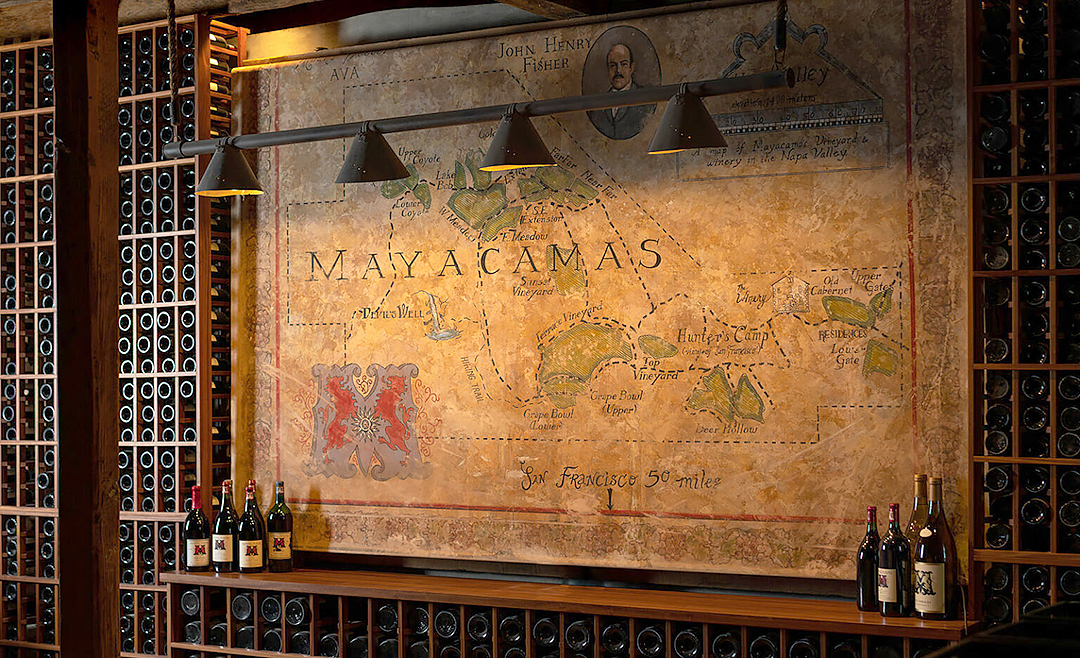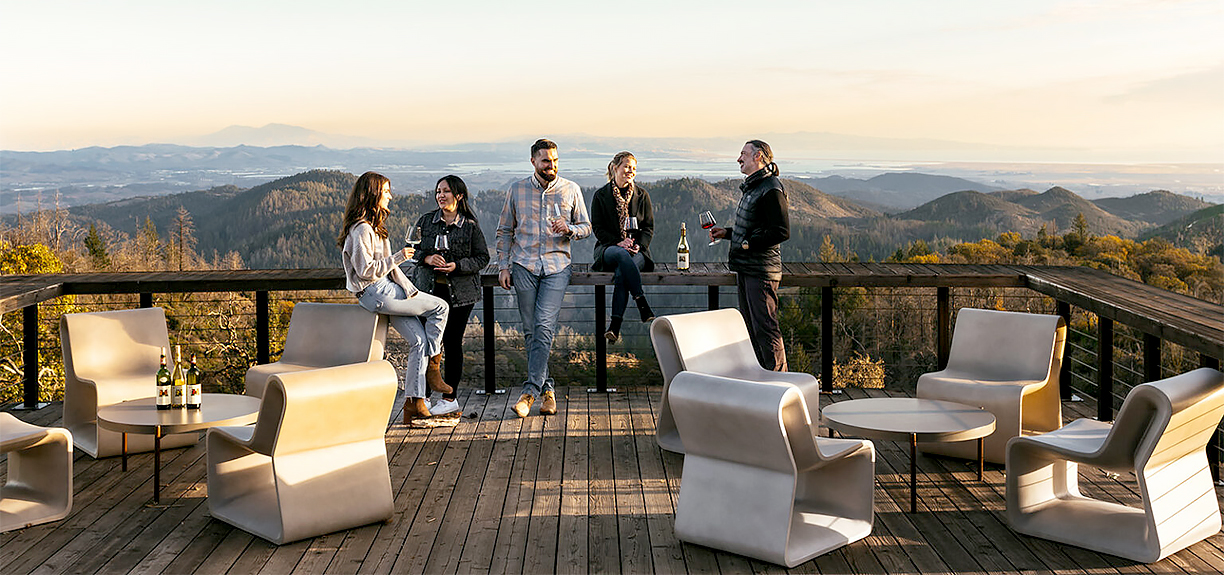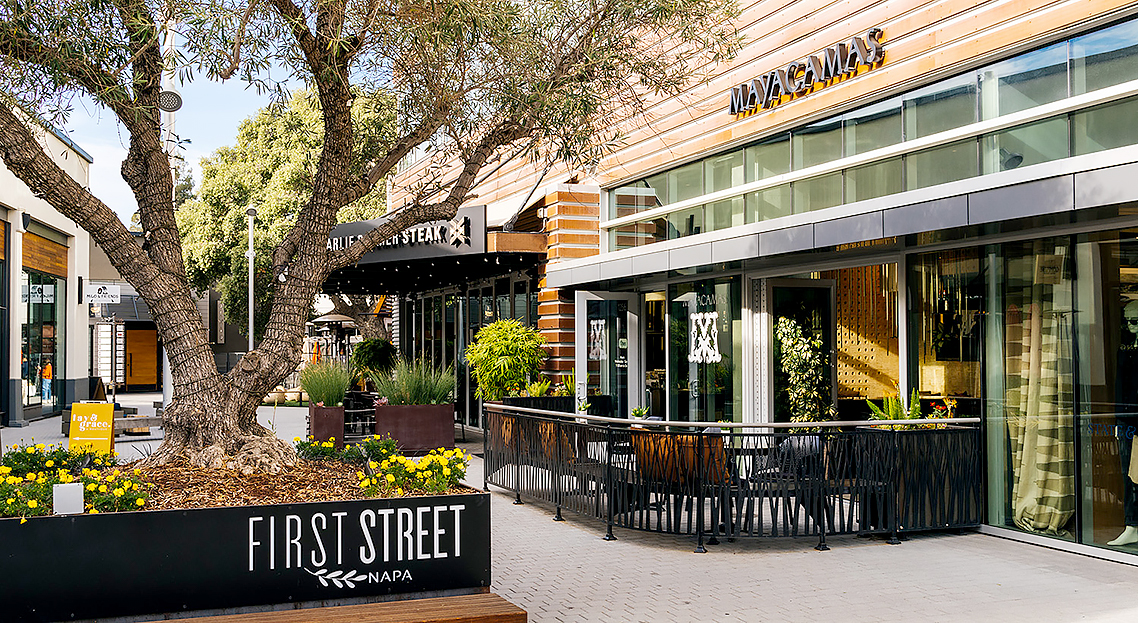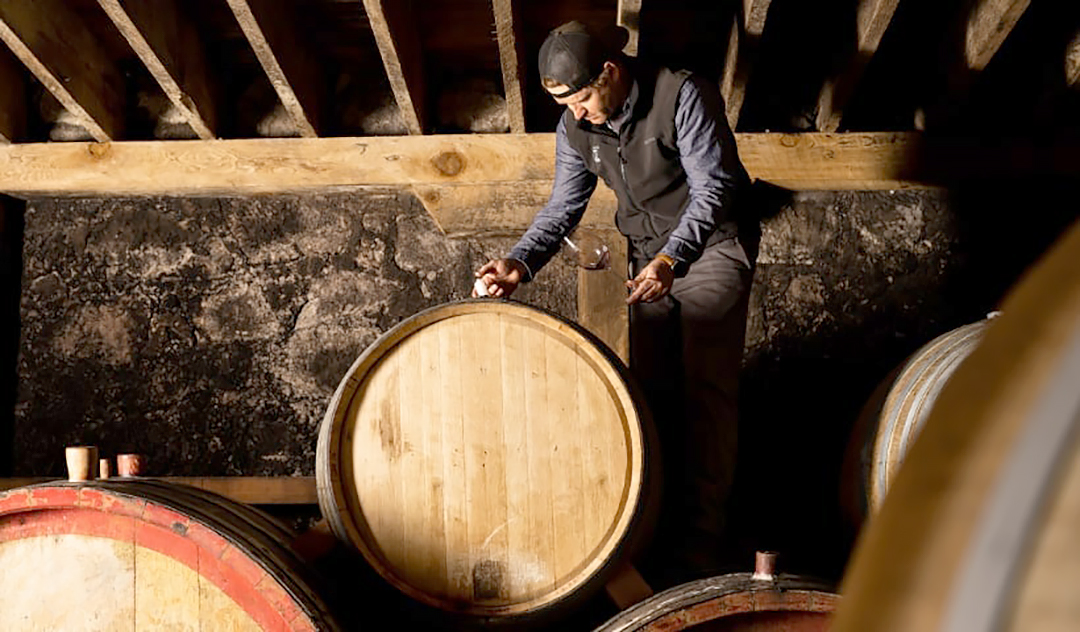Deep ruby color; raspberry, plum, dark cherry, blueberry, black fruits, spice, lavender, lilac on the nose and palate.
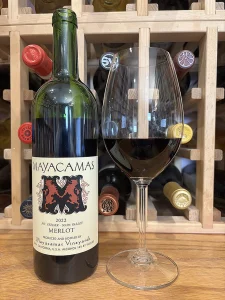
Dry; soft tannins; amiable acidity. Smooth, silky texture; medium body. Thanks to generous percentage of cabernet franc, darker and deeper than anticipated with merlot. Blend of 76% merlot, 24% cabernet franc. Hand harvested, cluster sorted, destemmed and pressed. Merlot fermented in concrete (35%) and stainless steel (65%). Cabernet franc fermented in open-top, neutral oak puncheon. After fermentation, wine aged in neutral French oak. 14% ABV
Estate-grown grapes come from Mount Veeder, elevation of 1,800-2,400 feet, engendering 30+ degree diurnal shifts. Volcanic tufa and fractured basalt contribute to flinty minerality. Restricted yields concentrate flavors. Most of the vines are dry farmed, deepening root systems and further concentrating flavor. Certified organic since 2013. Fruit from six merlot blocks, primarily French Clone 181 and Clone 3. Delicious now, capable of a decade-plus of aging.
John Henry Fisher, a San Francisco pickle merchant, founded Mayacamas in 1889 when he purchased rugged acres on Mount Veeder. He built a stone winery from volcanic rocks found on site, a facility that remains operational today. The San Francisco earthquake of 1906 destroyed Fisher’s pickle business and forced a bankruptcy auction. The Brandin family owned the land during Prohibition. Chemist Jack Taylor and his wife, Mary, acquired it in 1941. They rebranded the estate as Mayacamas Vineyards, a name derived from the Wappo Native American term for “howl of the mountain lion.” The brand logo today features two lions within a stylized “M”.

In 1968, Bob and Eleanor Travers purchased Mayacamas. The new owners gained international recognition when their 1971 cabernet sauvignon was part of the 1976 “Judgment of Paris” tasting. The wine did not win, but simply being in the competition enhanced its reputation. Location is central to Mayacamas’s position. The estate covers 475 acres on Mount Veeder in the mountain range that divides Napa and Sonoma. Some 49 acres are under vine. The winery sits dramatically on the edge of an extinct volcano crater at 1,800 feet elevation and the vineyard climbs above it.
The Schottenstein Family, owners of American Eagle Outfitters, acquired Mayacamas in 2013 with a commitment to continue the Mayacamas tradition. Renowned viticulturist Phil Coturri leads the effort that includes extensive replanting and a transition to fully organic farming. In addition to the vineyards, there has been extensive restoration of structures. The main residence on the property was destroyed in the 2017 Napa fires; a replacement is the centerpiece of today’s visitor experience, designed to connect both the past and present style of Mayacamus.
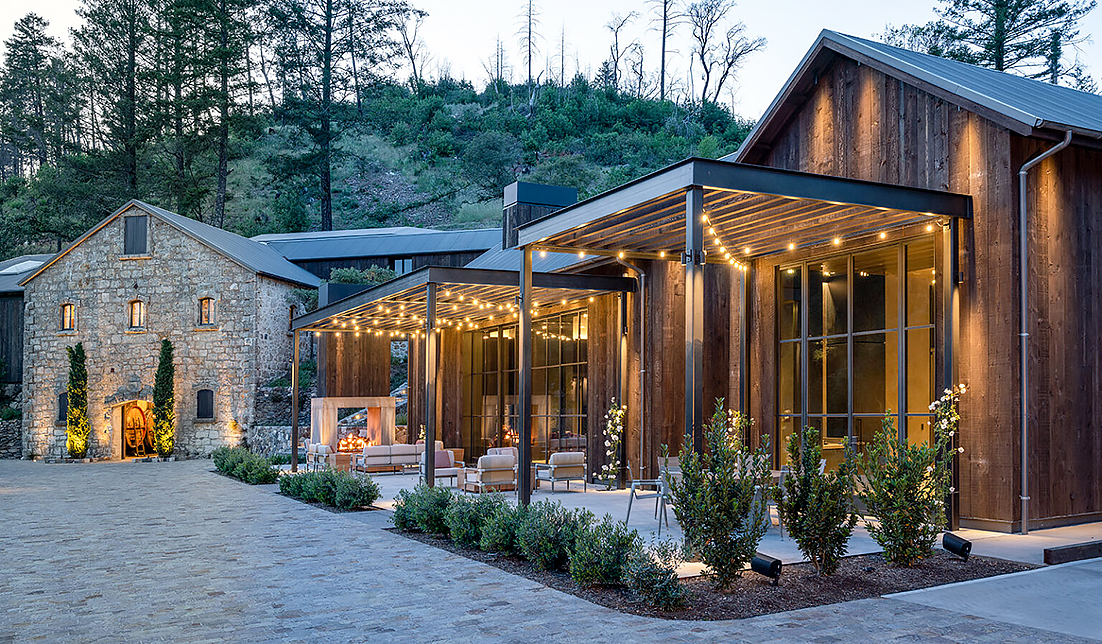
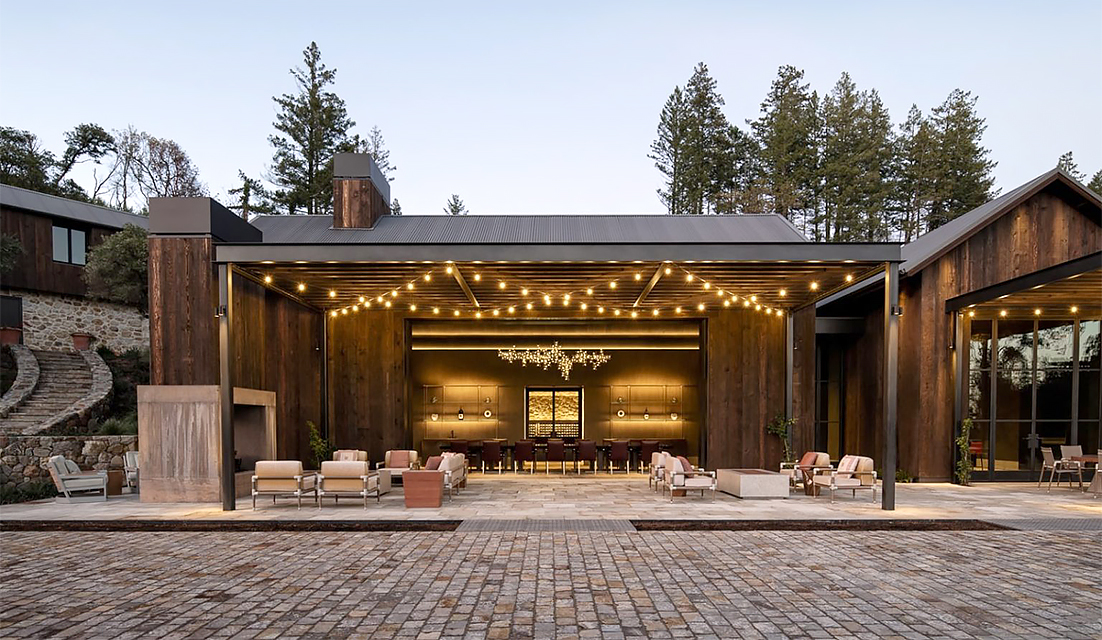
The website notes: “Our team’s commitment to tradition is borne out of a deep affection for our history—that spirit has informed our careful, considerate, and comprehensive restoration of the estate. In both the winery and in the vineyard, our love of Mayacamas’ singular style drives us to continue employing the traditional methods and pioneer-spirit of our predecessors.”
Mayacamas Vineyards Merlot Mt. Veeder, Napa Valley 2022 is a premium merlot-cabernet franc blend (76-24%) that delivers silky dark fruits in a smooth, accommodating style with mild tannins and minimum oak. Made with 100% estate, organically farmed grapes from historic vineyards on Mt. Veeder. $75
Pairing—traditional preparations of lamb, beef, pork, wild game. Grilled or braised filet mignon, ribeye, New York strip. Lamb is especially suited; leg of lamb with rosemary and garlic, lamb shanks braised in red wine, rack of lamb with herb crusts. Pork tenderloin, braised shoulder preparations. Venison, duck, wild boar with reduction sauces, wine-based marinades, herb-rubs. Roasted chicken, turkey accompanied by rich gravies and cranberry sauces. Will also work with salmon, seared tuna, other meaty fish. Roasted vegetables with caramelized edges; roasted beets, carrots, squash. Cheese—semi-hard, aged cheese; gruyère, aged parmesan, swiss. Soft-ripened and creamy; brie, camembert. Gorgonzola works when served at room temperature.
